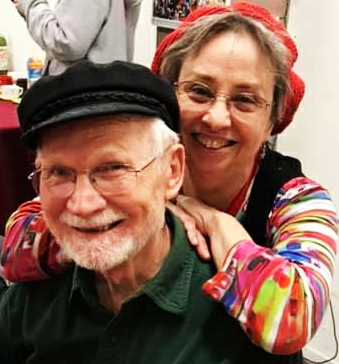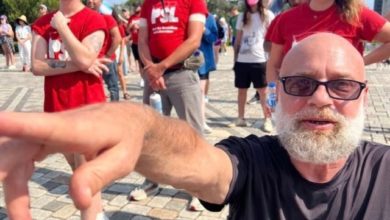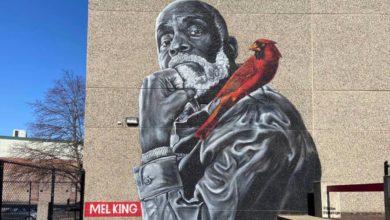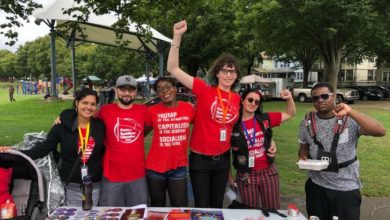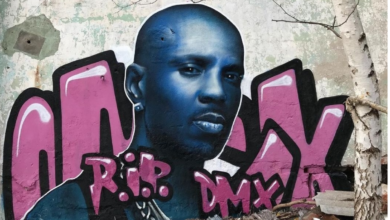Photo: Jon Britton in 2006. Credit — Bill Hackwell
The Party for Socialism and Liberation is deeply saddened by the death of our long-time comrade and founding member Jon Britton. We express our sincere condolences to his family, friends and his partner of 40 years, founding PSL member Susan Muysenberg. Jon devoted his entire adult life to the movement, becoming an active communist in the early 1960s at the age of 22. Through all the ups and downs that followed, he was guided by his unshakable faith in the working class to carry out the transformation of society through socialist revolution.
Jon was a longtime leader of the PSL in San Jose, California. A stalwart member of the city’s progressive movement, he built close relationships with other organizers and worked to recruit new activists to the cause. Jon became active with the San Jose Peace and Justice Center in 1982, serving on many leadership positions over the years, and organized with the South Bay Mobilization against the War. Jon was also a long-time member of the Santa Clara County Peace & Freedom Party, serving as County Chair for the two most recent terms.
Jon was also a long-time member of the national editorial staff of Liberation News as well as other publications of the PSL. A close and insightful observer of international and national events — especially relating to the economy — he worked tirelessly to build the publication into a dynamic outlet for working class news and analysis. He is greatly missed by his fellow editors.
Born in Bismarck, North Dakota, Jon grew up in a household that rejected the suffocating, repressive atmosphere of the McCarthyite anti-communist witch hunts and questioned the emerging Cold War. Jon was encouraged by his family to seek direct, unbiased information about the rest of the world — including the Soviet Union — rather than simply accepting the demonizing propaganda that was ubiquitous in society.
While in high school, Jon’s father got interested in ham radio. Jon took to it and began building radios and spending hours and hours after school and on weekends sending and receiving messages from all over the world. He won a few competitions for most contacts made worldwide (the recipients would send a postcard verifying contact). Jon became the engineer at a remote control room/antenna site for the local tv station.
Because of his ham radio and television engineering experiences, he and his father decided he should study electrical engineering in college. He graduated high school in 1957 and went to Northwestern University, outside Chicago. After a couple of years of study, he had developed an intense interest in economics, but his family did not approve of him switching his field of study. But as deeply disappointed as he was, in later years he said he was glad he hadn’t gotten a bourgeois economics education that he would have to unlearn once he discovered Marxist economics.
Jon joined a demonstration in 1961 calling for “fair play for Cuba,” leading him to become a socialist. He became committed to political activism and later that year joined the Socialist Workers Party.
Jon worked as a committed cadre throughout the tumultuous 1960s and 1970s, when liberation movements around the world surged but had to contend with horrific violence unleashed by the United States — including inside the United States itself. He actively participated in the struggles against U.S. imperialism and racism as well as in the labor movement, while helping produce a number of socialist publications. After organizing in New York City, Seattle and Chicago, Jon moved with his beloved wife and comrade Susan Muysenberg to San Jose in the early 1980s. Over time he developed strong differences with the prevailing direction of the SWP on international, national and organizational issues — especially on the Soviet Union, which Jon correctly believed was threatened by counter-revolution and needed to be defended against such a fate. He left the organization in the 1980s, joining Workers World Party in the early 1990s before going on to become a founding member of the Party for Socialism and Liberation.
Always immersed in study as he sought to deepen his understanding of the world he was fighting to transform, Jon developed a special focus on economic theory that he pursued for decades. He and his long-time co-thinker Bill Gottlieb sought to further understand the dynamics of the capitalist system, especially as it relates to the causes and effects of the periodic crises that capitalism undergoes. The ideas they developed during their decades-long collaboration formed the basis of the publication A Critique of Crisis Theory. Jon edited the outlet, helping clearly express the new perspectives on crisis theory it was advancing and building a dedicated following of Marxist thinkers and activists.
Jon knew the injustices that workers faced at the point of production first hand, having been involved in organizing at industrial job sites. In the late 1970s, Jon went to work at a Ford plant in New Jersey and became a member of the United Auto Workers, seeking to build organization and support for socialism at the workplace. He was laid off a couple years later as U.S. capitalism underwent a profound deindustrialization and the Federal Reserve responded to the economic crisis of the early 1980s with the “Volcker shock” policy of high interest rates (all topics that Jon would later study and write on from the point of view of economic theory). He later worked at a plant in San Jose organized by the International Association of Machinists union. Jon would stay engaged with the labor movement throughout his life.
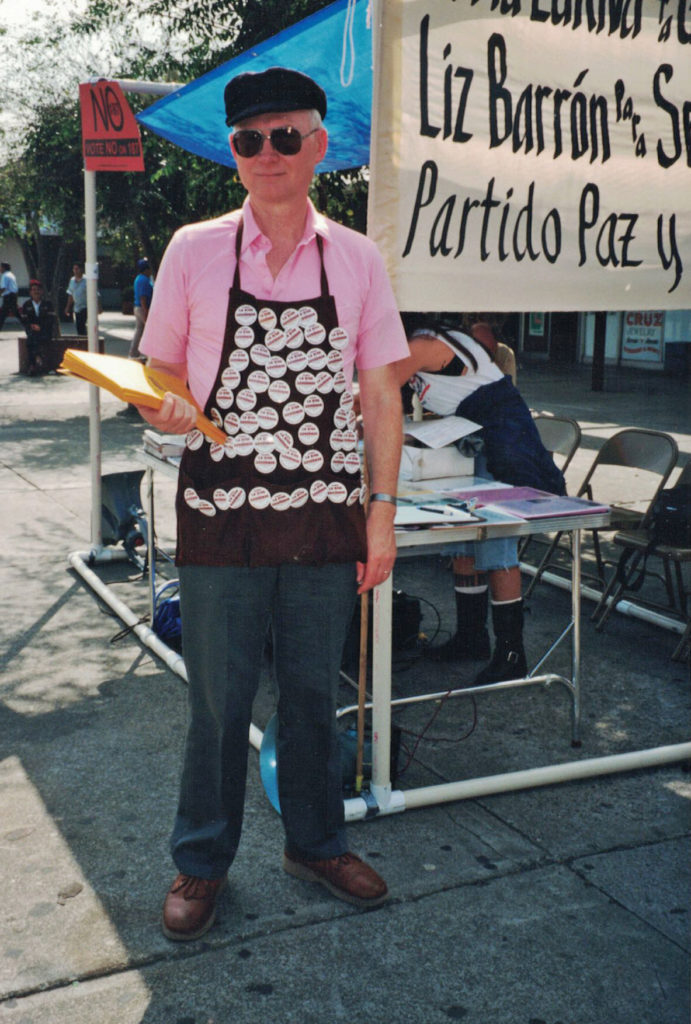
Jon’s life in the communist movement spanned some of its most exciting advances and bitter setbacks. Out of the stifling period of anti-communist reaction in the wake of the McCarthyite “red scare”, a new period of struggle and radicalization emerged in the 1960s and 1970s. Then in the late 1970s and 1980s counter-revolution gained the upper hand, with the radical movement and organized labor dealt a series of historic blows. Even as the capitalist class declared the “end of history” in the 1990s with the overthrow of the Soviet Union and many other socialist governments around the world, Jon never lost his faith in revolution.
In his final years, Jon saw another period emerge — one in which the socialist movement in the United States was rejuvenated. After being pushed to the fringe of political life for so long, socialism has emerged in recent years as a true mass phenomenon with support from millions across the country. Jon’s perseverance as a revolutionary was proven correct — as long as the injustices of capitalism remain, the fight for a totally new system will never be extinguished.
As a new wave of young organizers became dedicated cadres in the fight for socialism, it meant so much to have a comrade like Jon, who was always willing to share the insights and experiences he had accumulated over the years as a fighter for the working class. Rather than something completely new with no roots in the United States, Jon helped new activists understand that they were part of a proud tradition of successive generations of communists who committed their lives to the movement for a new world. We will carry on this struggle.


